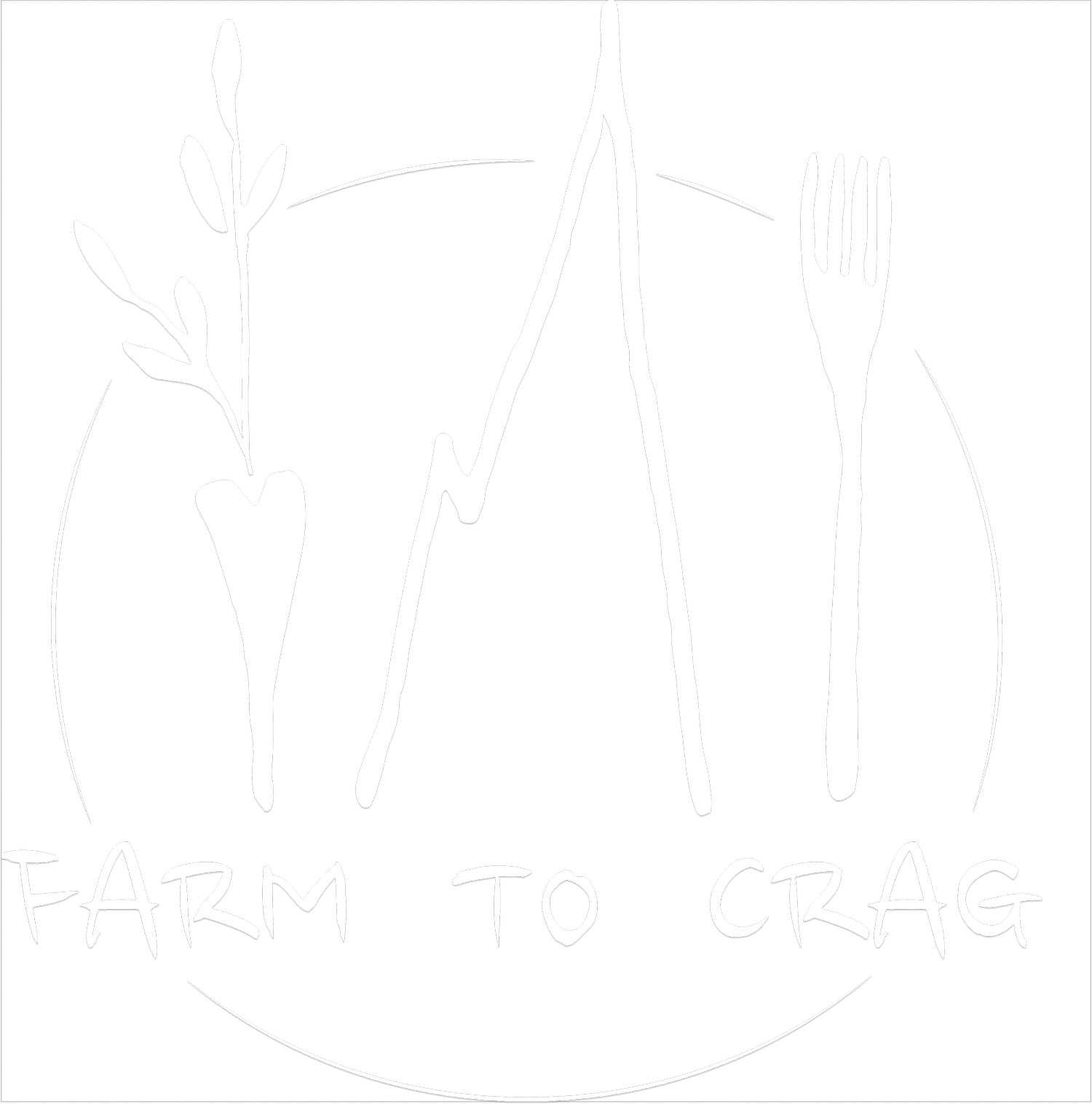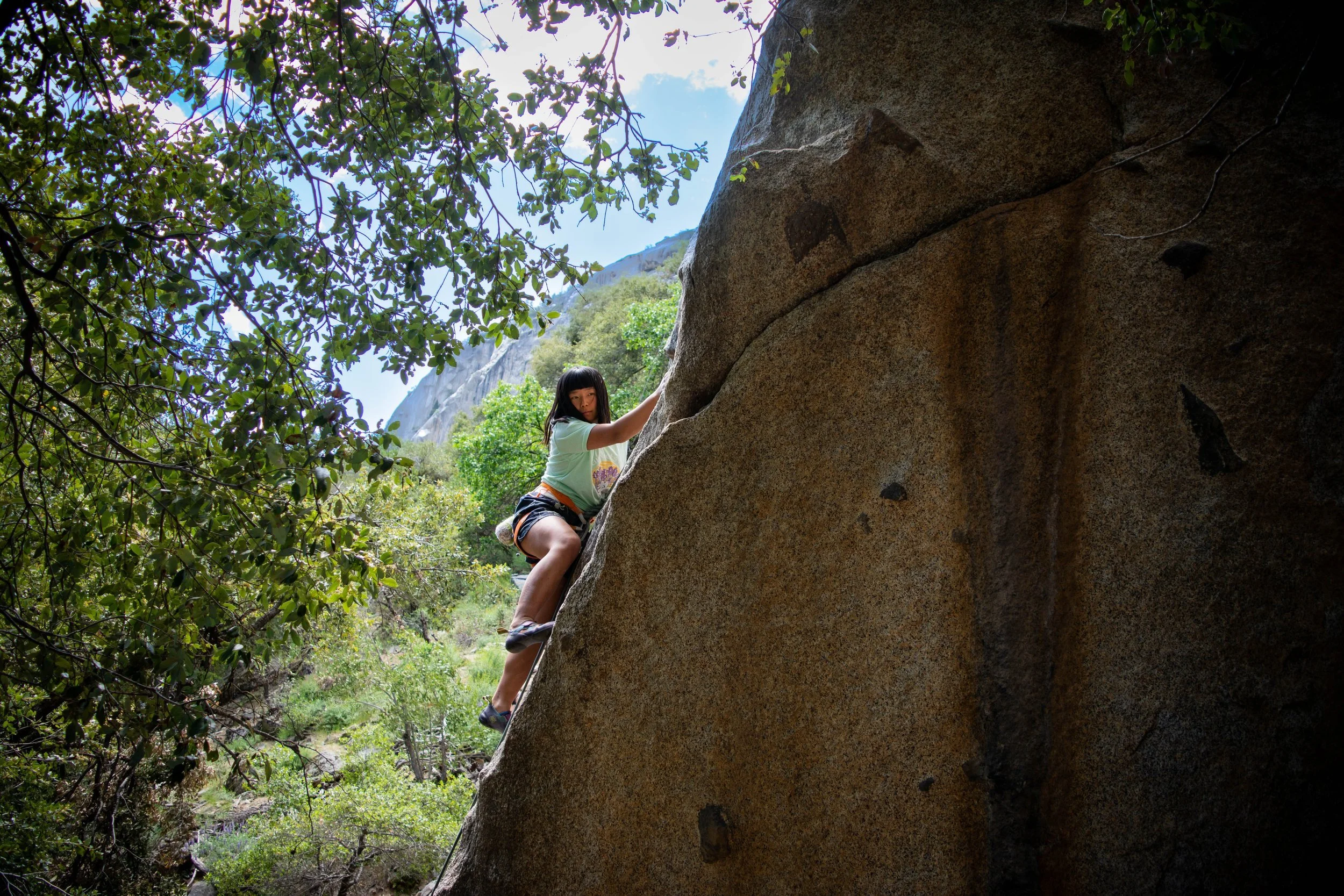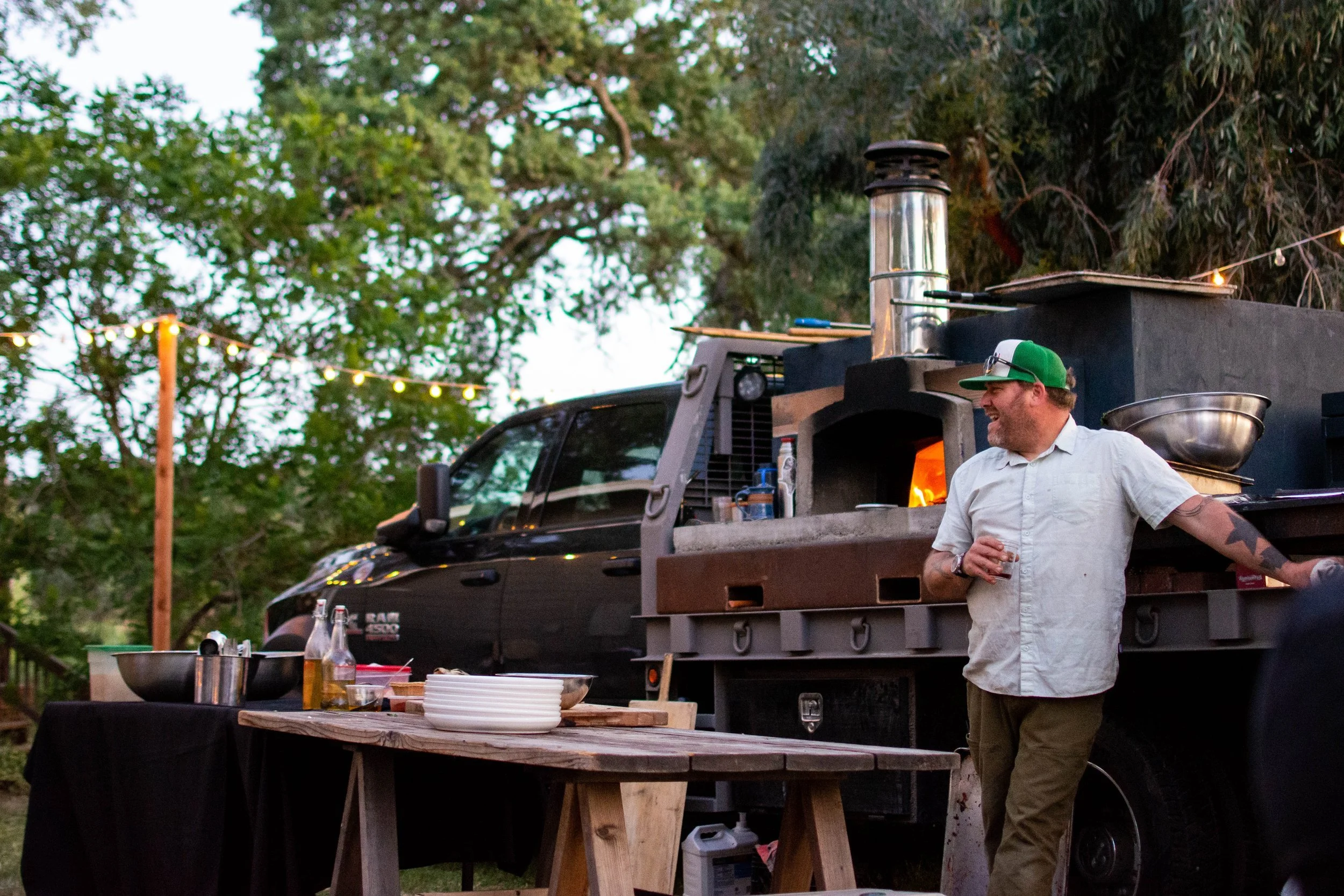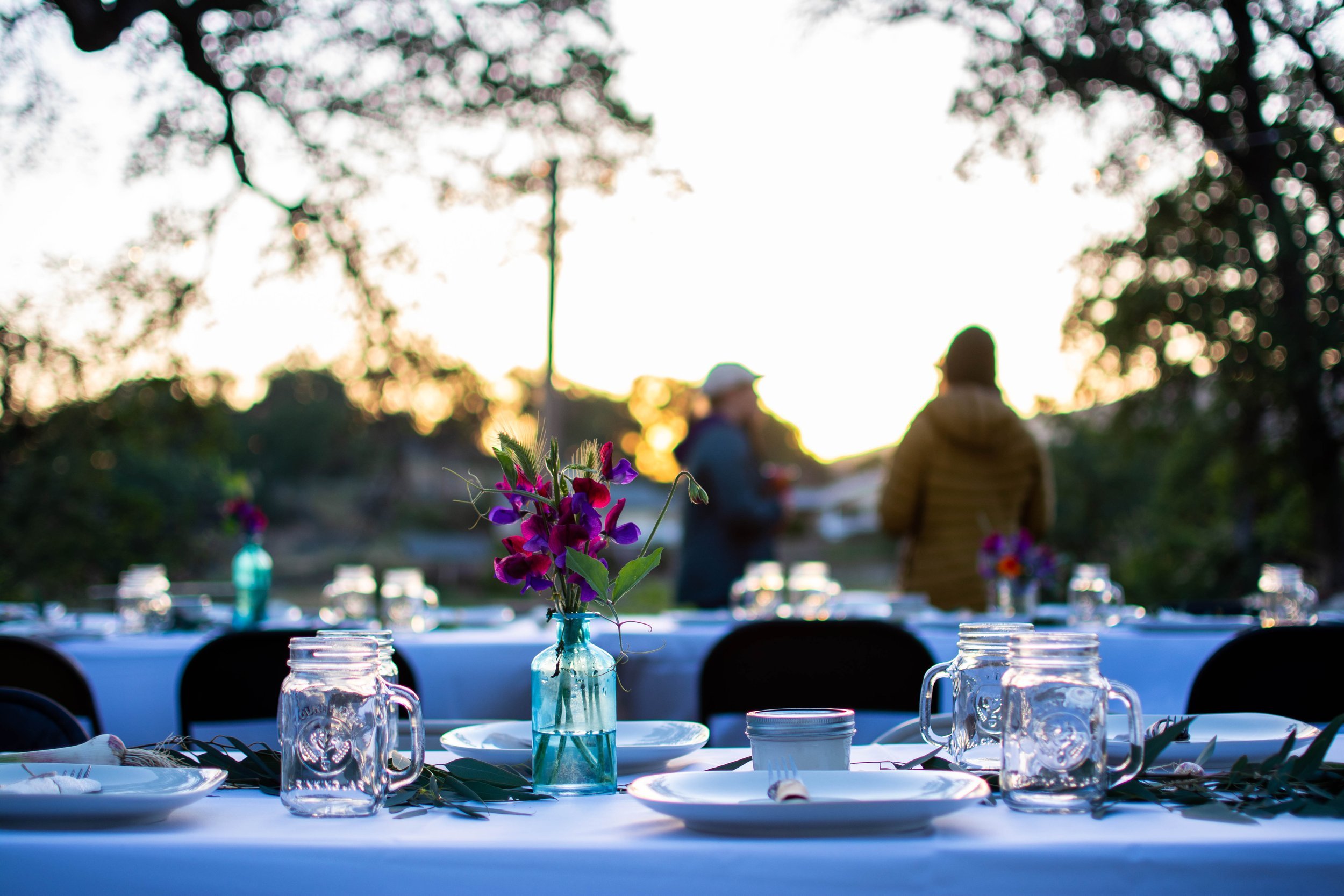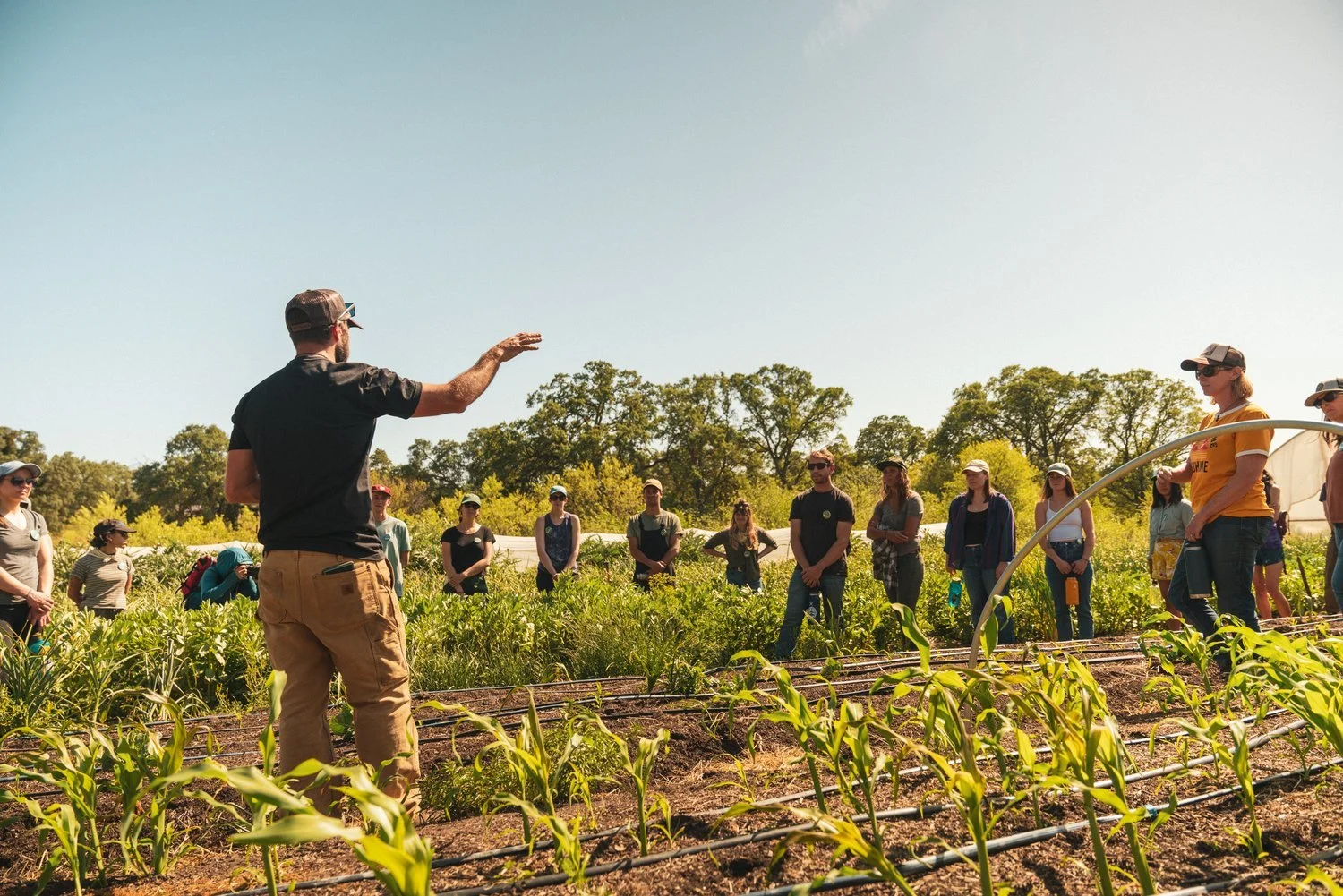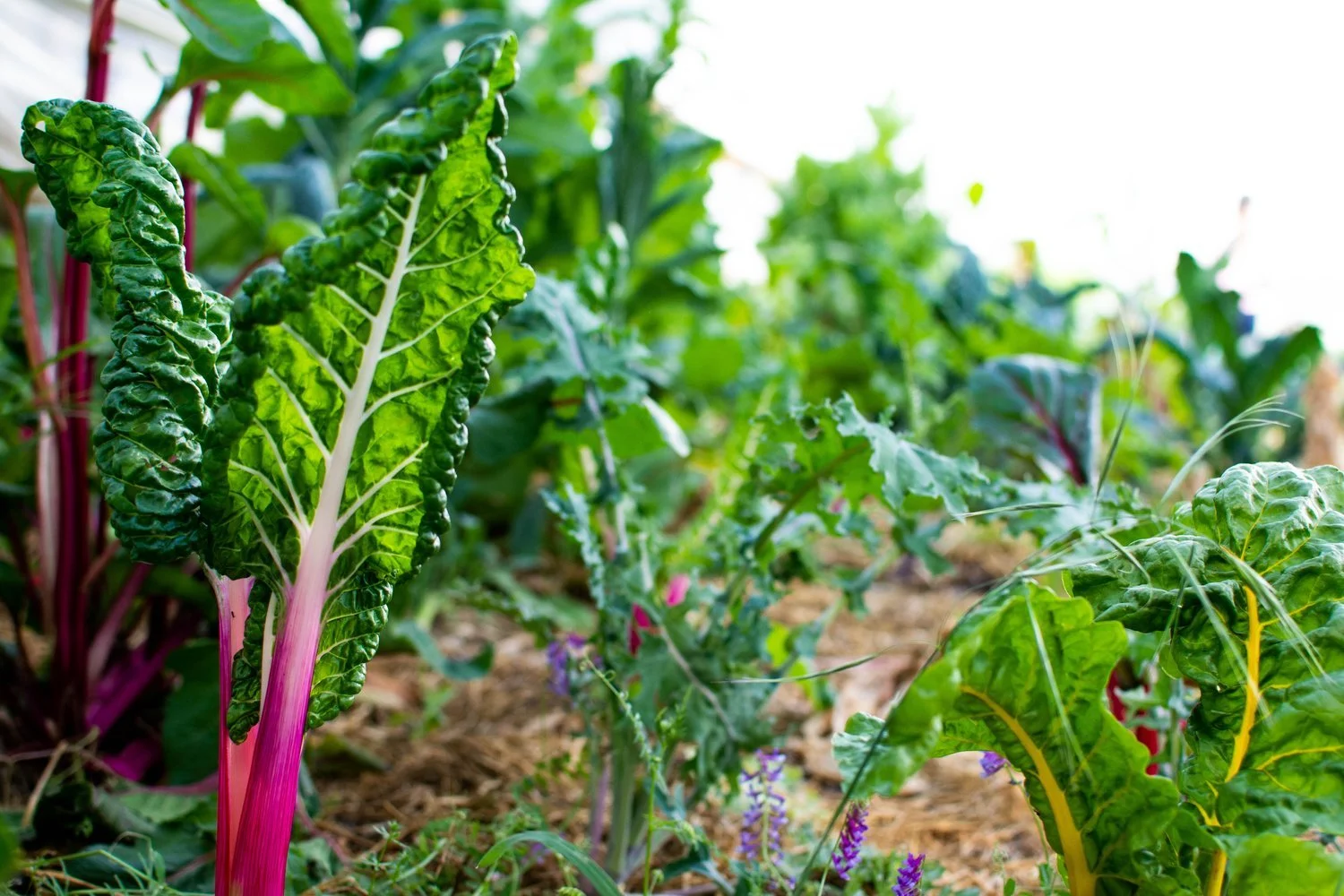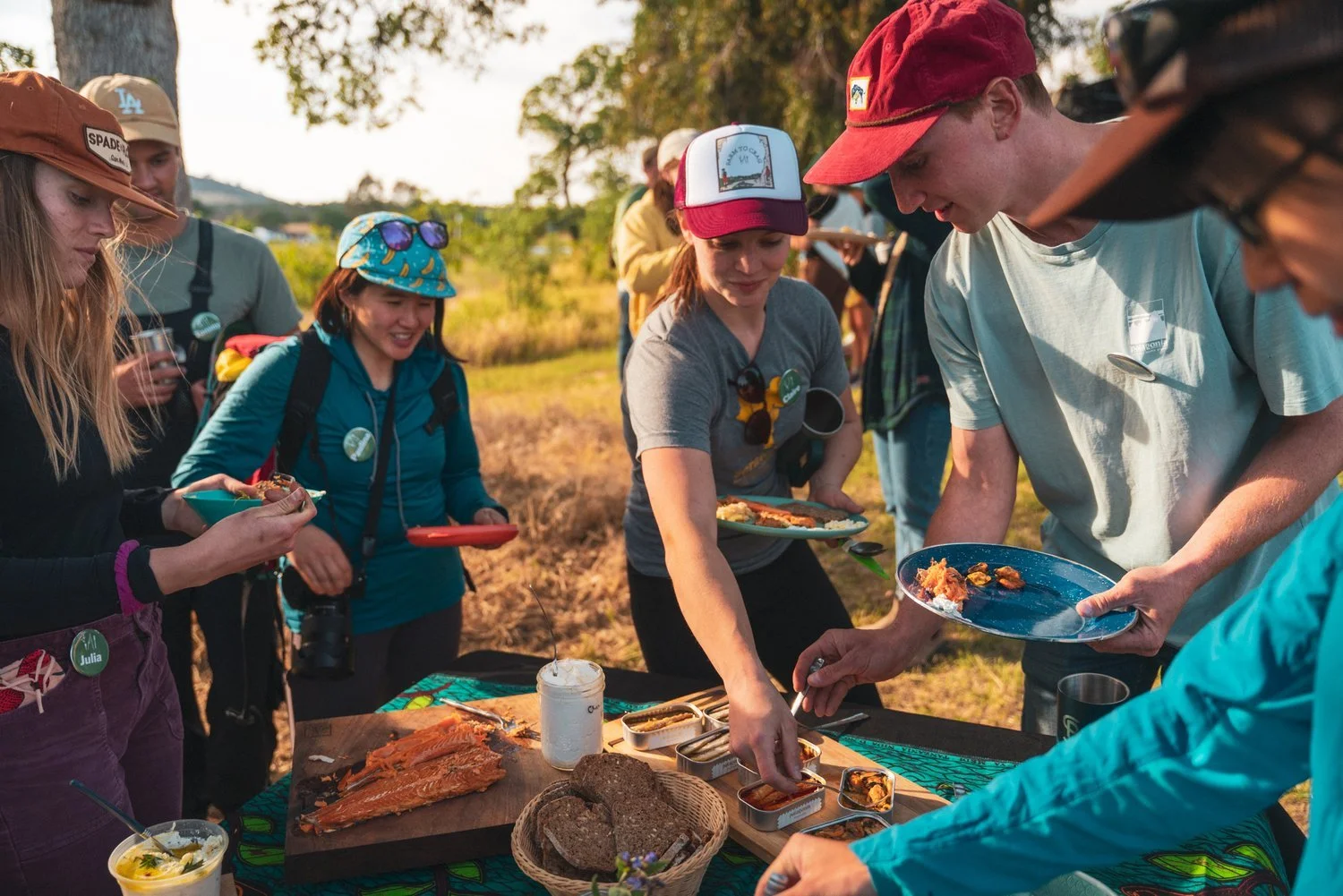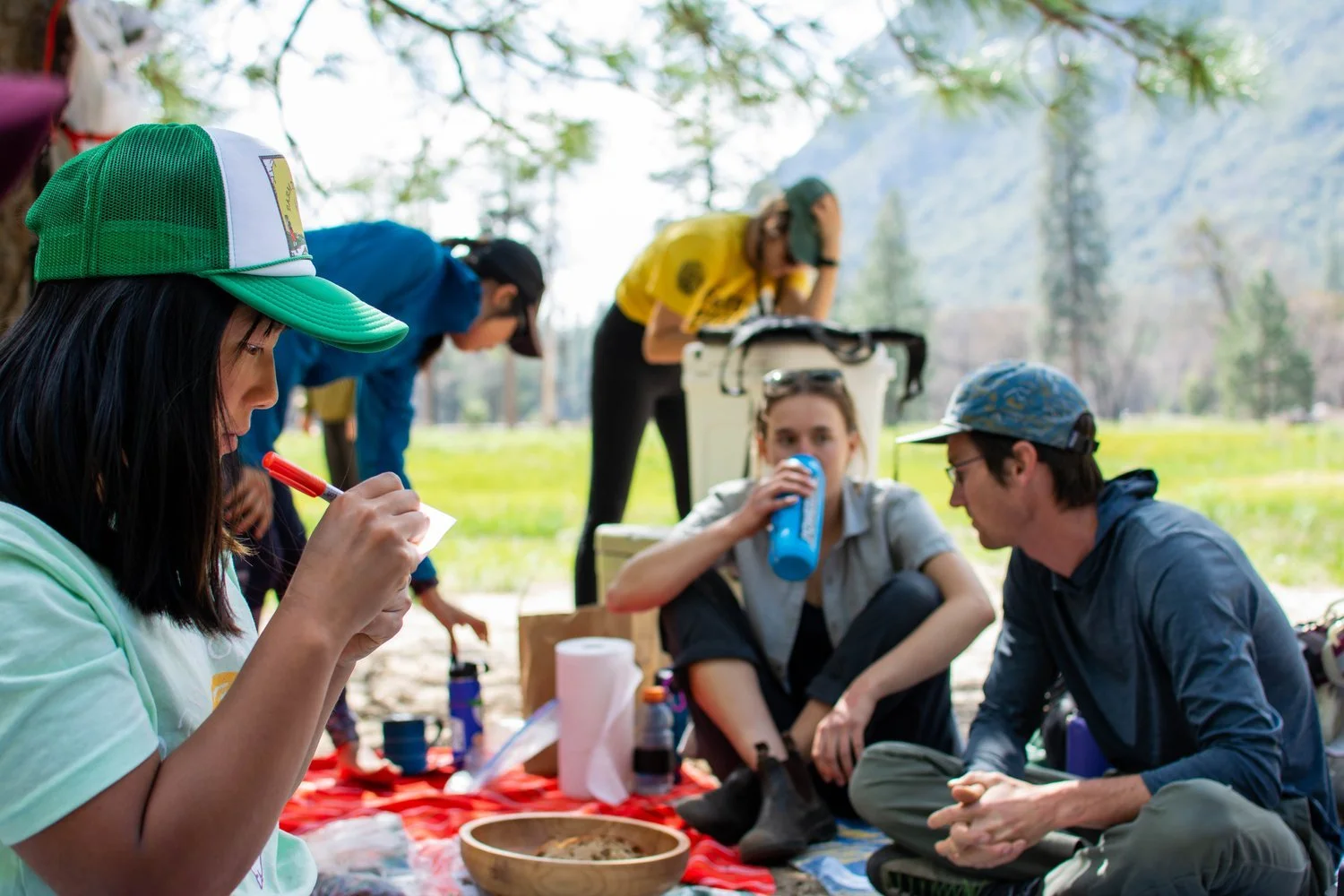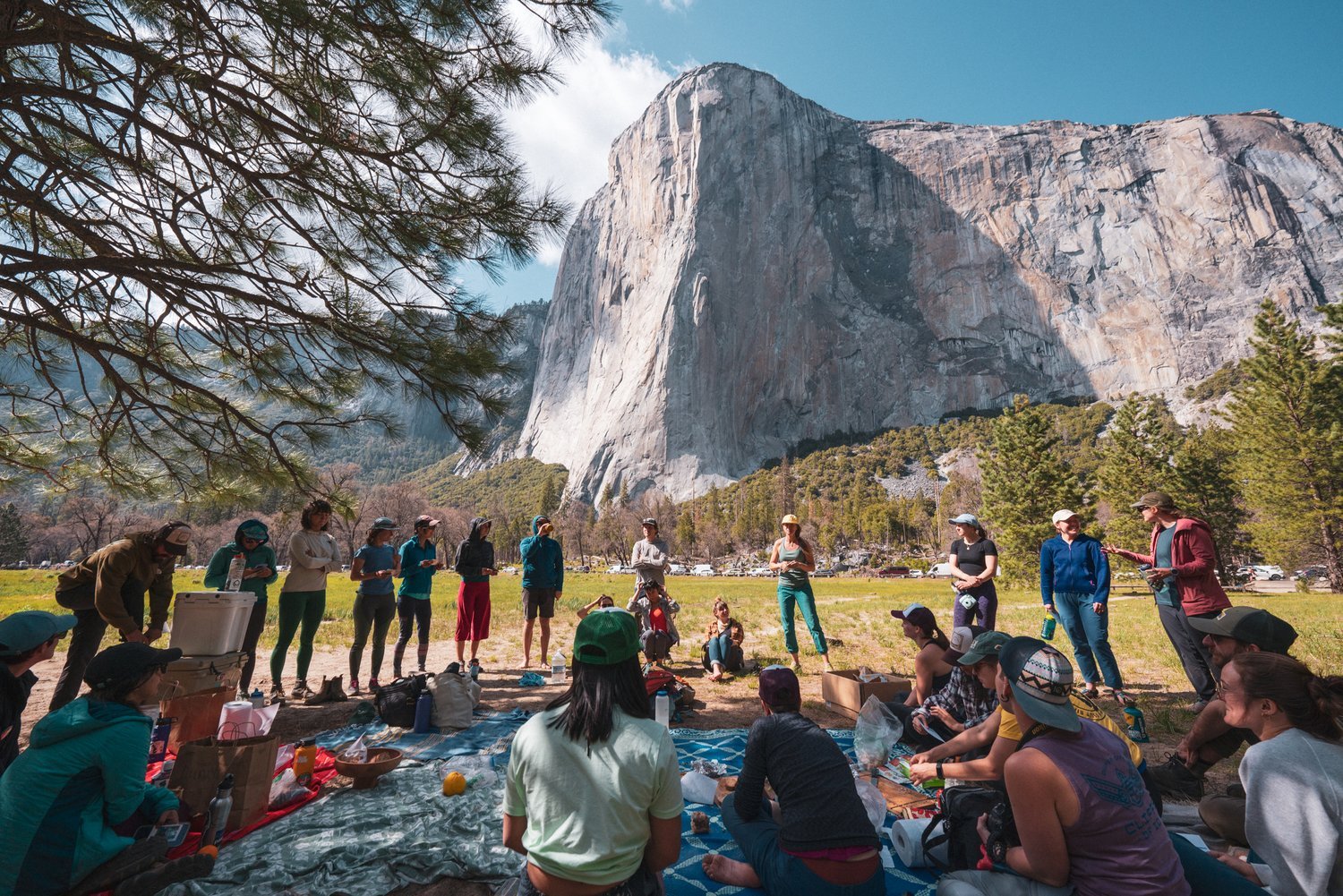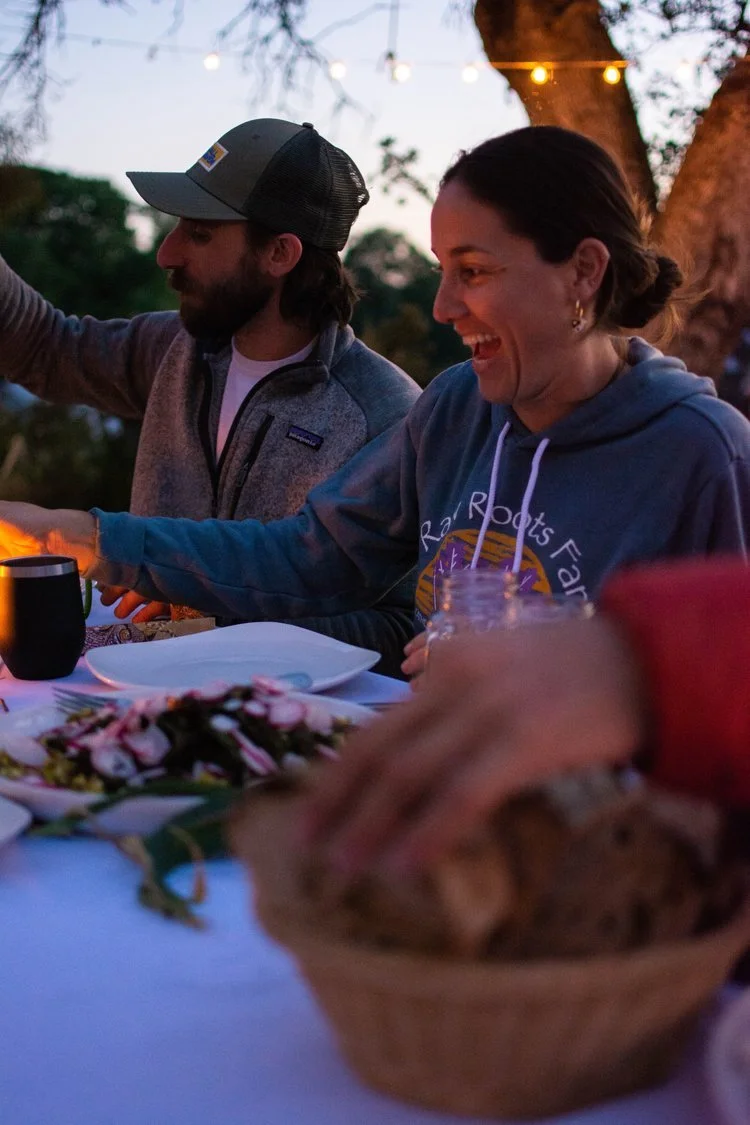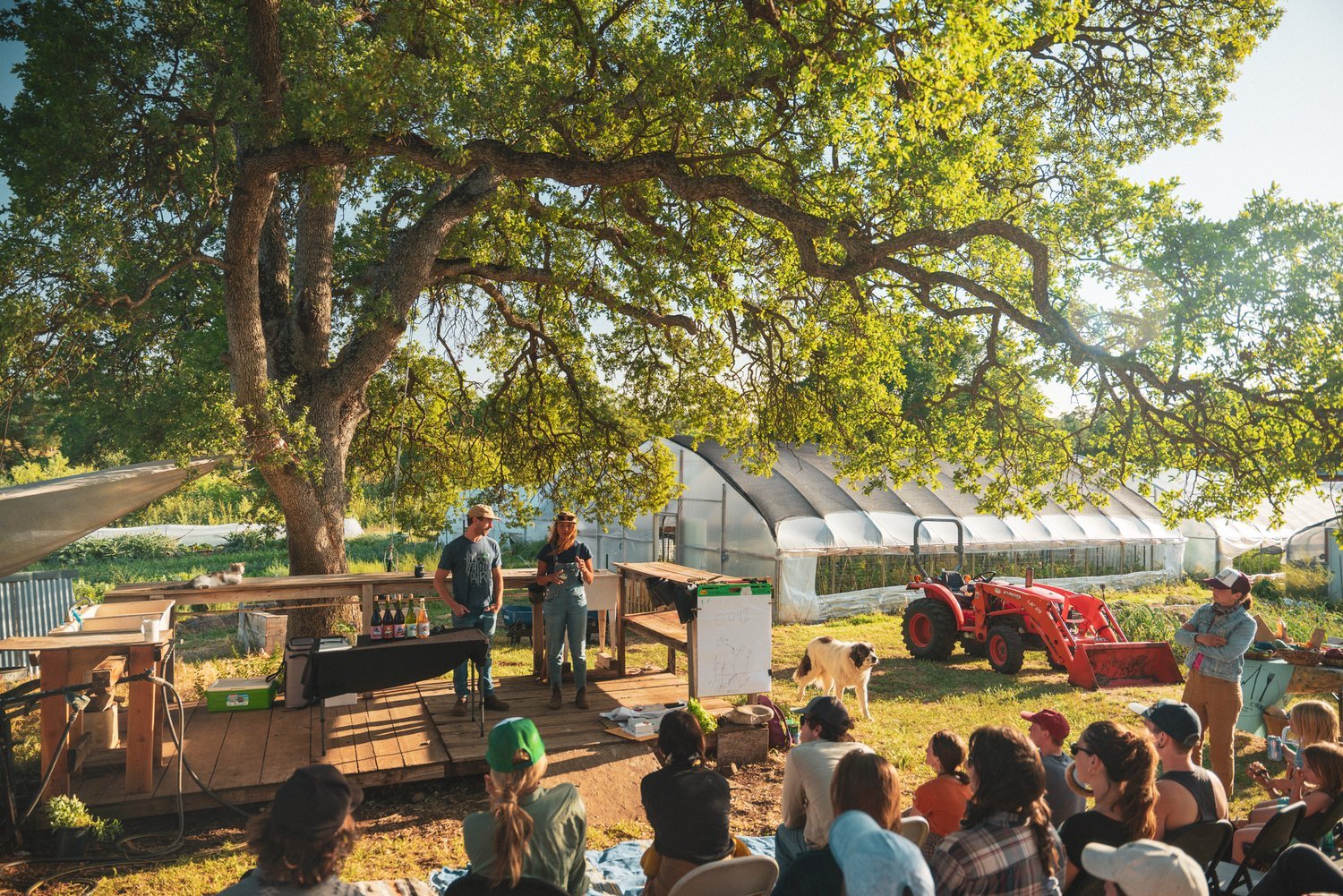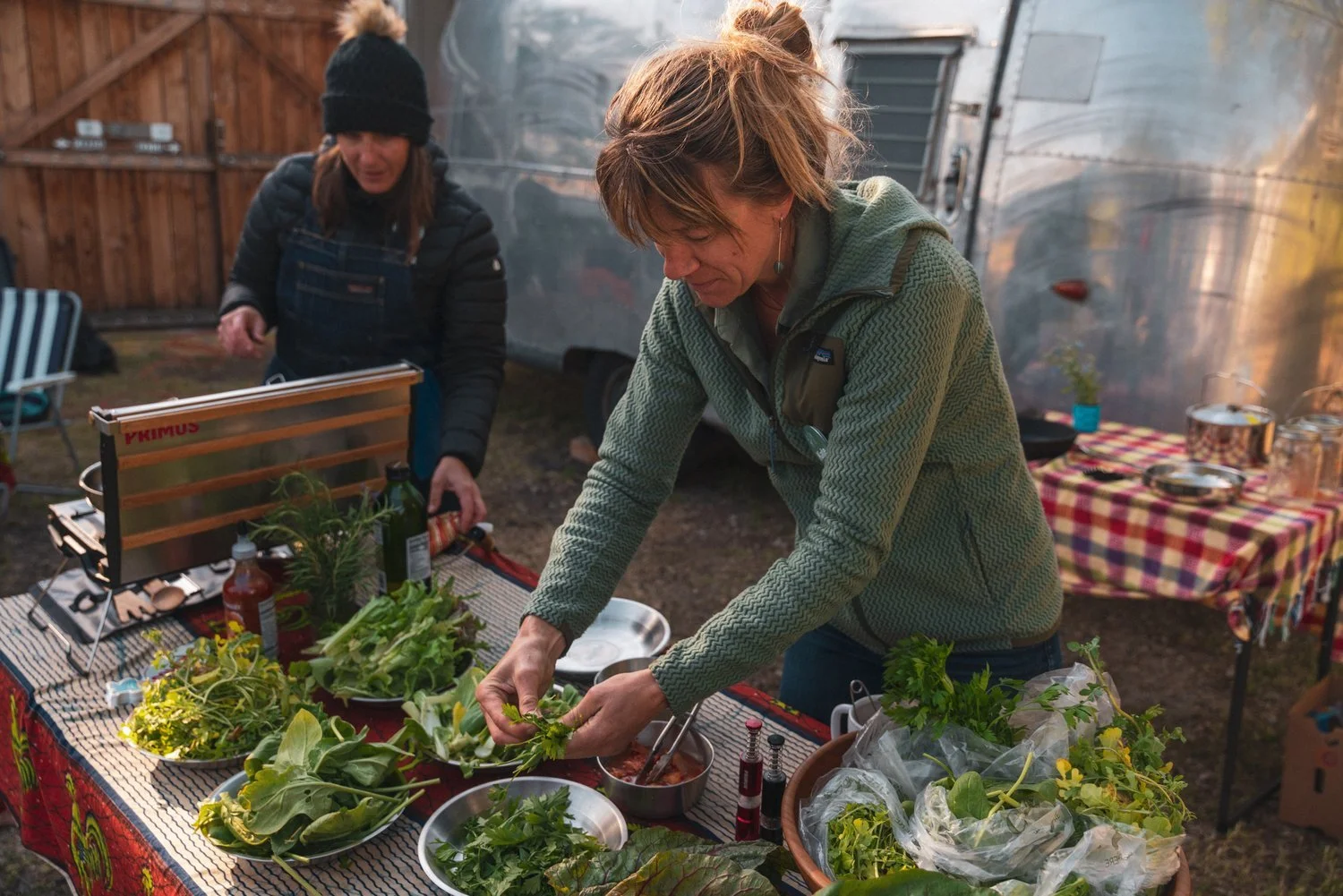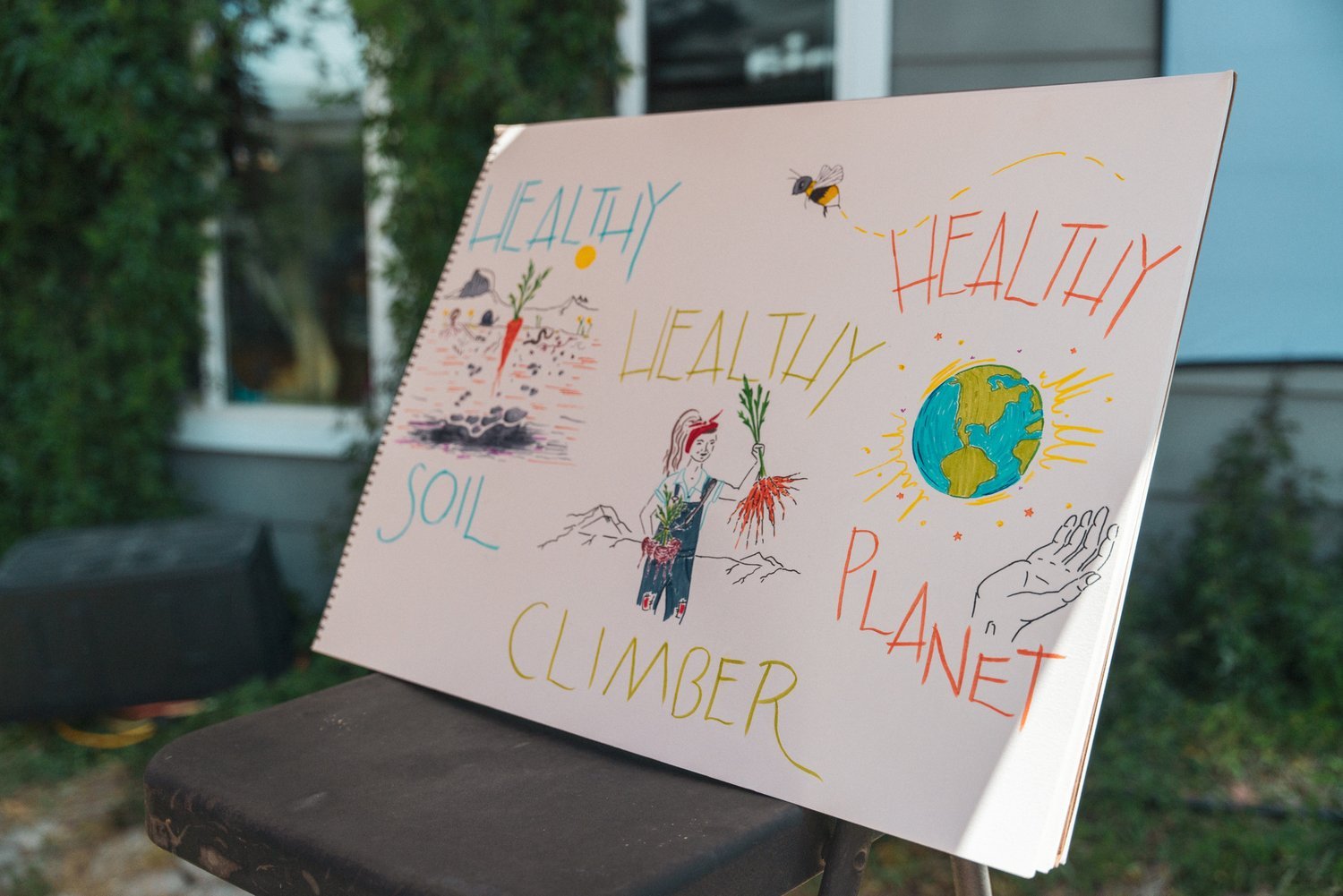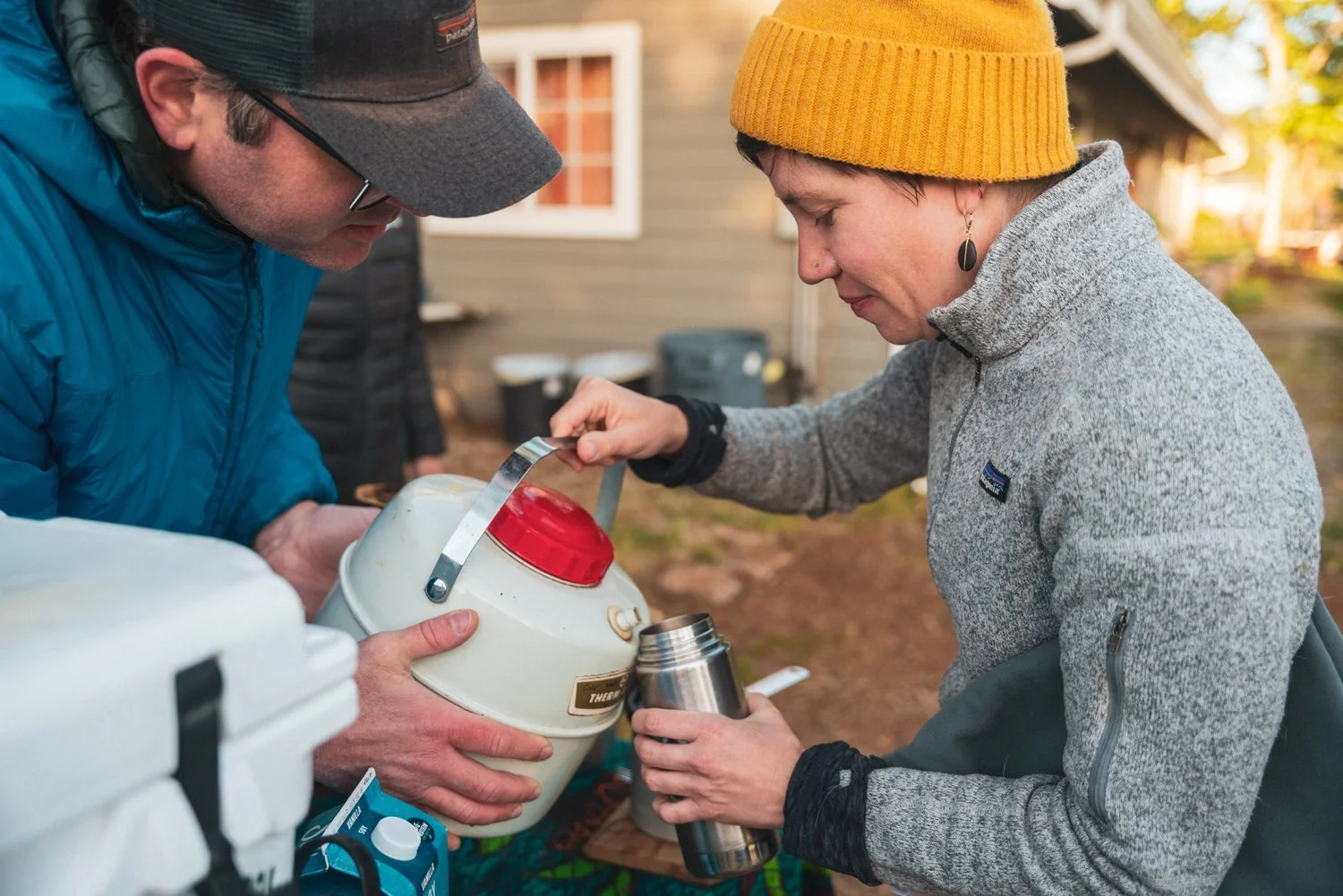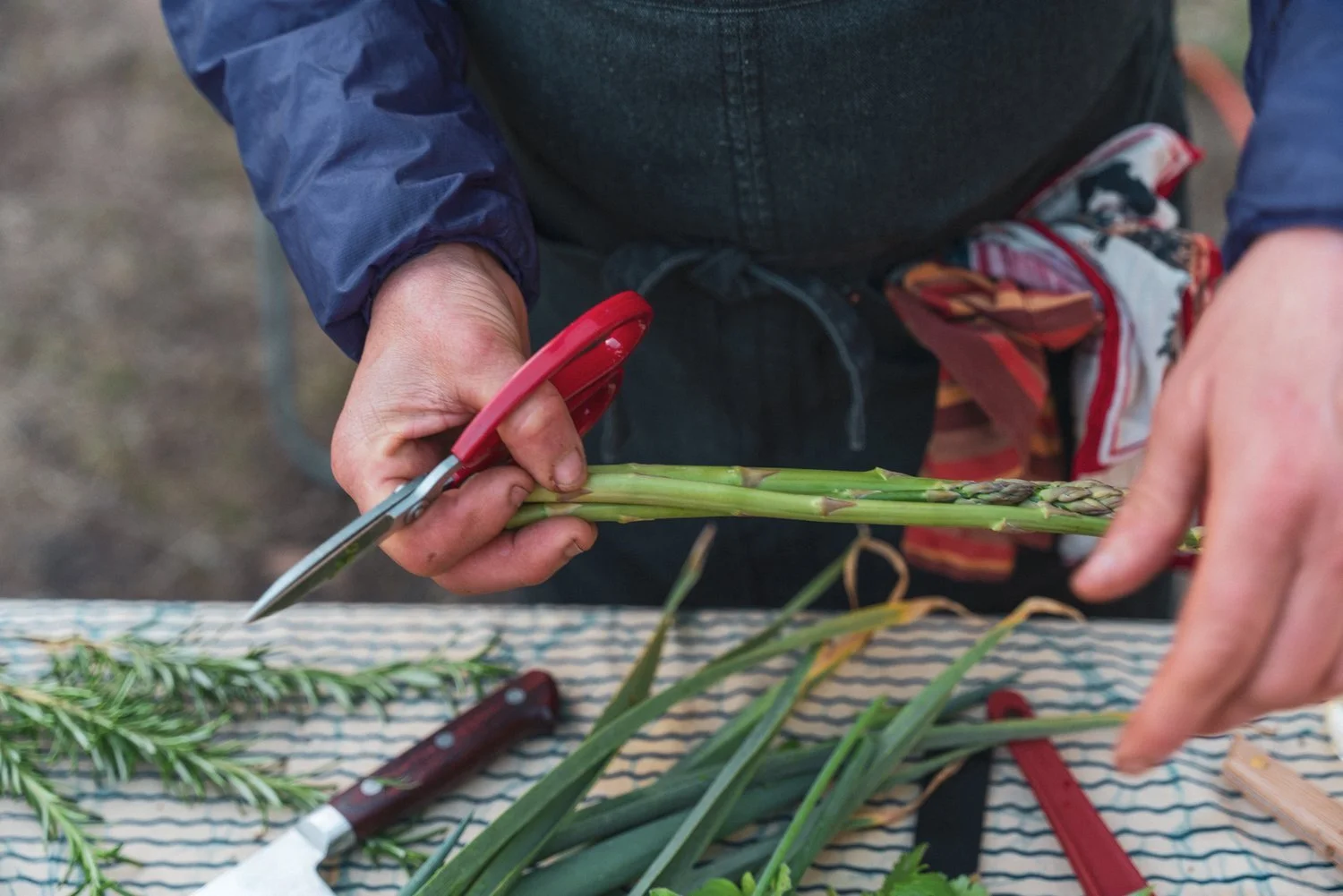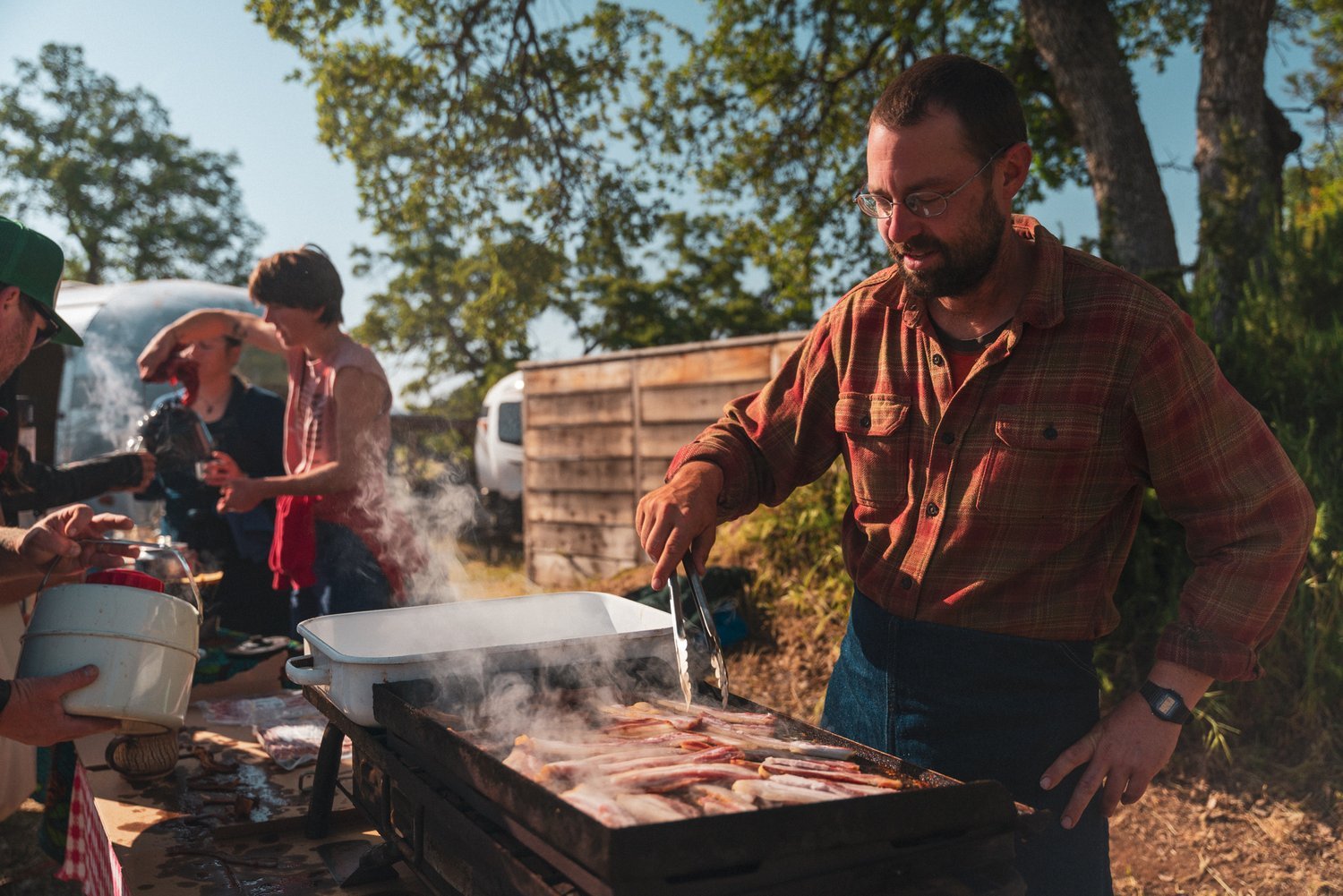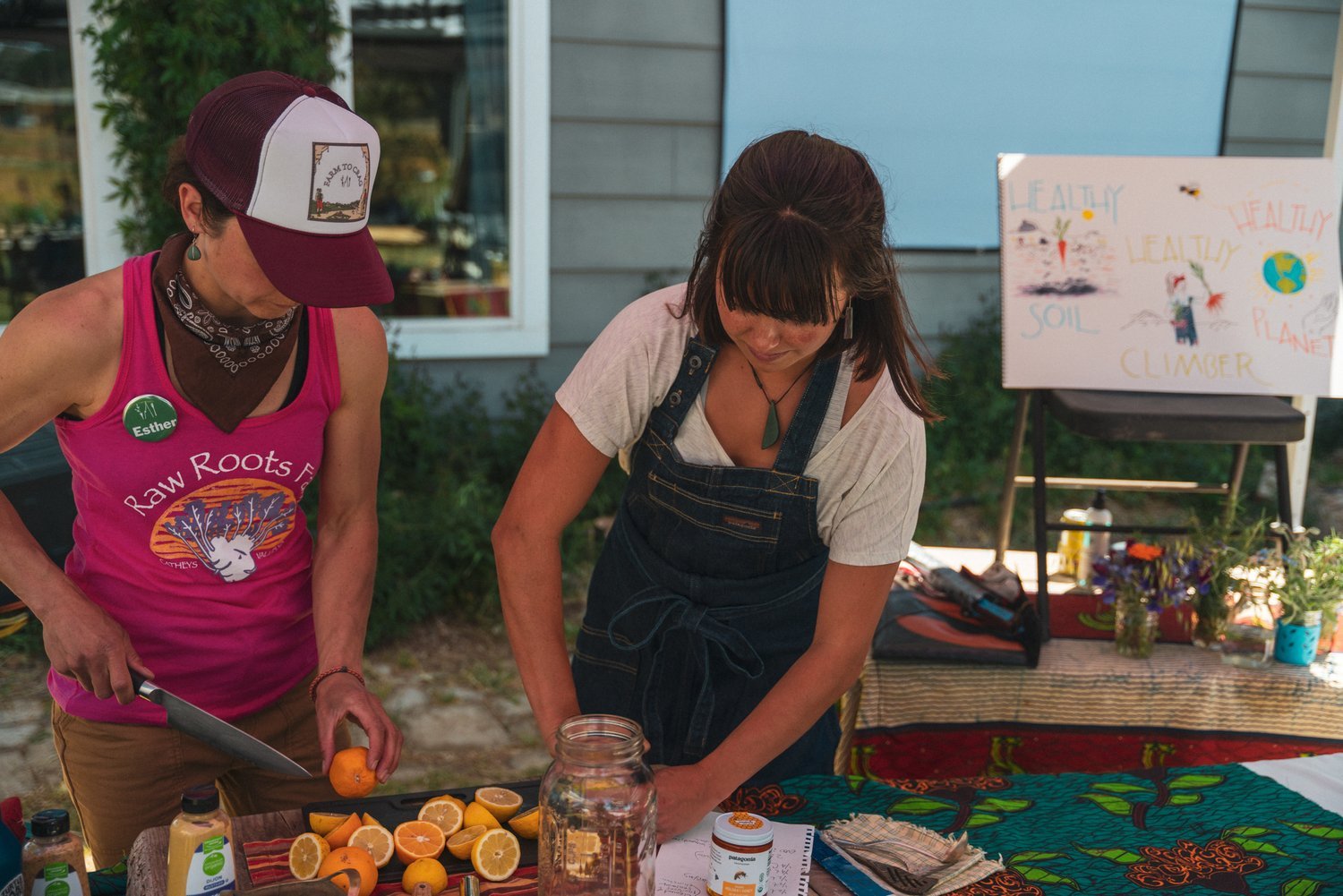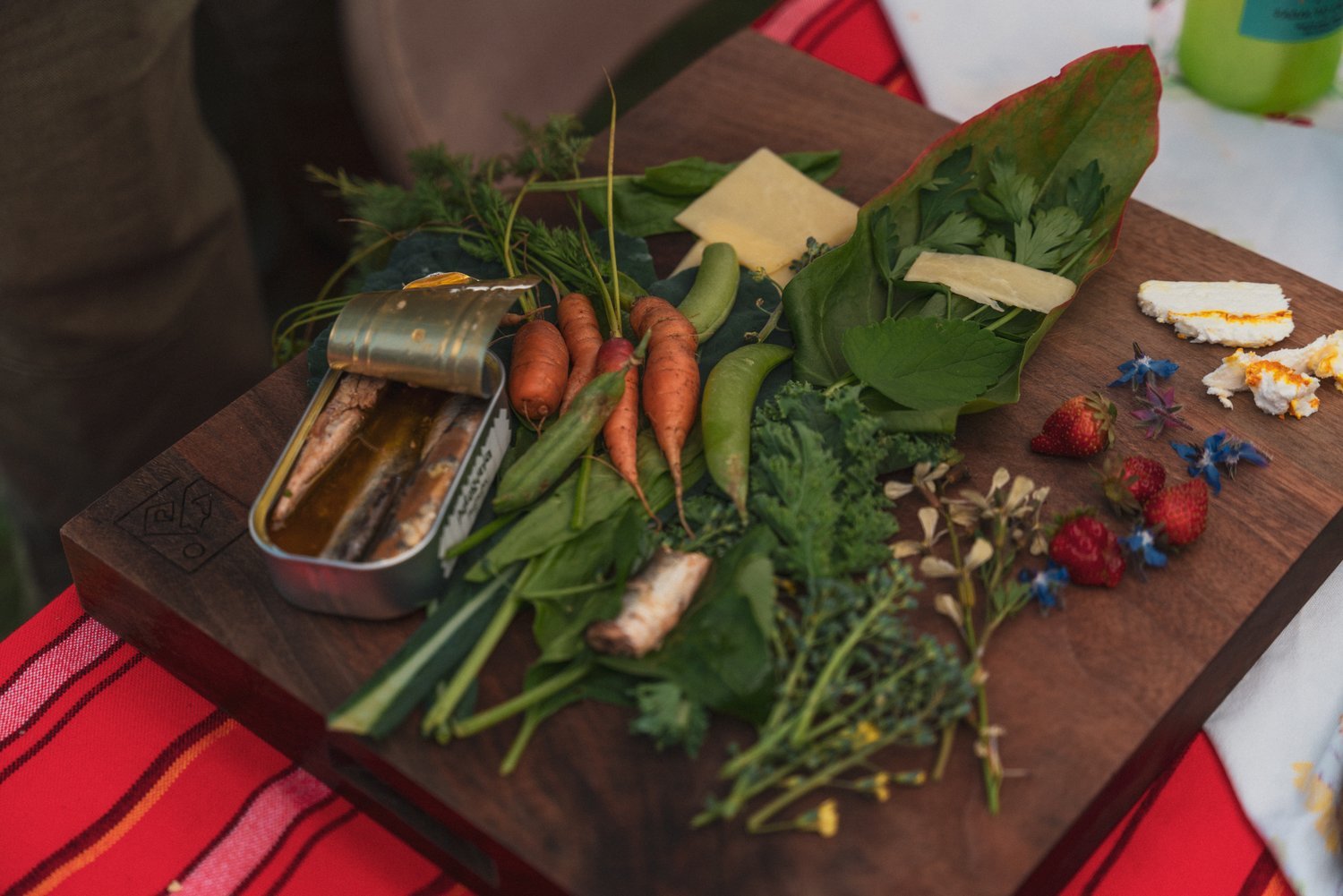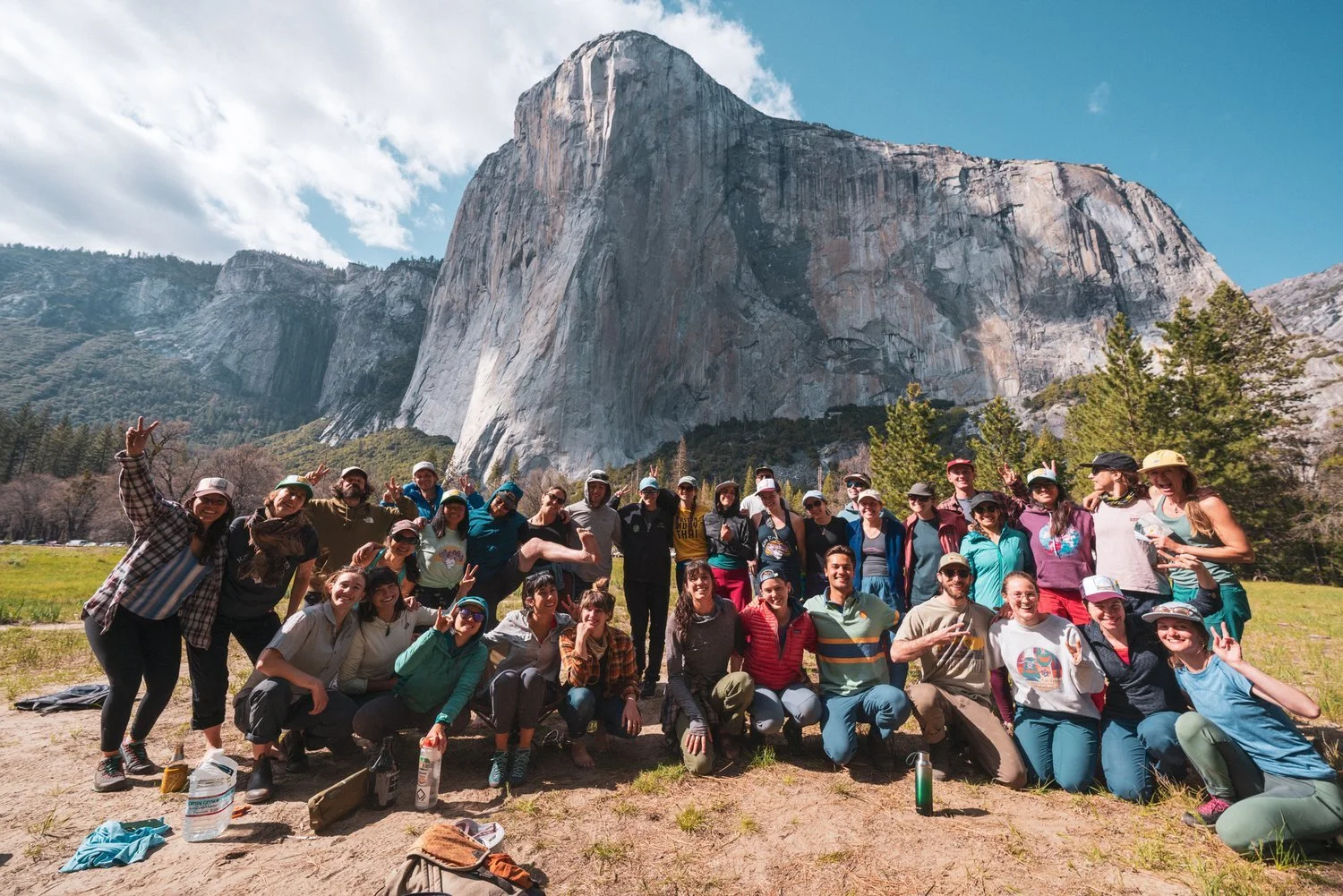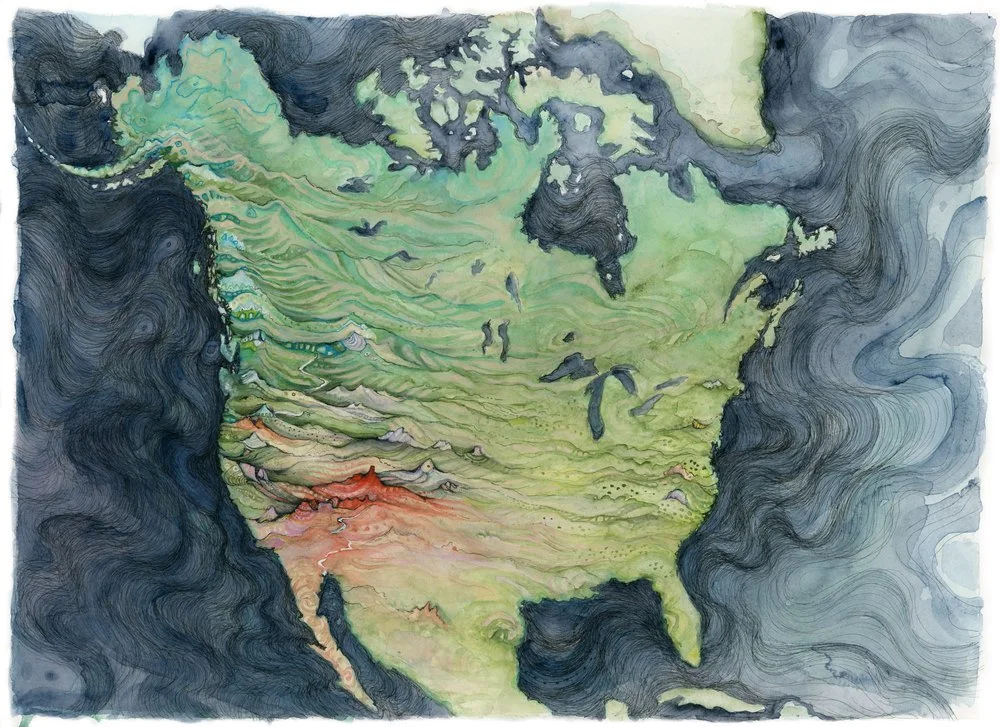Gathering at the Intersection of Food, Climbing & Reciprocity
Yosemite Farm To Crag 2022 Gathering
An exploration of reciprocity
Recently, while attending the annual Farm-To-Crag gathering outside of Yosemite, an important question was posed to us: what does climbing have to do with sustainable agriculture? How does a sport, which often exists in the purview of the privileged, get mentioned in the same breath as restoring soil and feeding people nutrient-rich food? What do clipping bolts and slamming hand jams have to do with combating industrial agriculture and storing carbon in the soil? On first blush, it shouldn’t, it doesn’t, and it can’t. Seen only as recreation in a consumeristic society, climbing and food do not belong in the same conversation.
But looking deeper into the drivers of human motivation, “sport” is inherent to our biology and therefore to our conduct as a society. The act of playing is a crucial way in which animals and in particular, mammals, develop the strength and skills of mobility to be successful. In our species, sport and play create powerful social bonds amongst individuals and communities. Also, innate in our kind is the persistent drive to explore the unknown. Humans have an incredible, athletic capacity for long-distance travel and the ability to occupy virtually every ecosystem while searching for food and shelter. In this ancient process, we discover ourselves. We deepen and grow on physical, emotional and spiritual planes. Along with every other tree, sparrow, lizard and mushroom spore, we humans are beings of this planet. We belong to the landscapes we travel over. Is it any wonder then, that that we find so much joy smearing granite nubs high above the Merced River, or pulling thuggy roofs amongst the warblers in West Virginia? The exploration of self and of place is as human as it gets, and like all other organisms, we have to eat.
Climber Ashima Shiraishi on a thoughtful slab in Yosemite Valley, CA. - Photo: Becca Manners @beccathewoodlandanimal
Unfortunately, much of our modern methods of sustenance and economy contribute to climate change, algal blooms, habitat loss, erosion, industrial waste, dust bowls, land subsidence, pollinator die-off and more. The list of harmful effects from industrial culture is long and depressing. The mechanization of food production and compartmentalization of modern life pervades other activities as well. When we are hungry we graze the produce section and buy meat in a plastic tray; we go to the gym to exercise; we drive many miles to faraway national parks to connect with the land; we “seize” the mountains for our own adventure. It’s not that consumption on its own is inherently bad; after all, there would be no living without taking. What’s problematic is that we consume without reciprocating. We live but are in poor relationship with the land. Such a reality can be overwhelming and demoralizing. How then, do we restore relationship?
Regenerative Organic farmer and chef Matt Dillon stands next to his wood fire oven on his truck. — Photo: Becca Manners @beccathewoodlandanimal
The freshest most local food we could find deserves to be honored with beautiful words of gratitude, flowers, light, a form of reciprocity. — Photo: Becca Manners @beccathewoodlandanimal
Consider the bumblebee. When she visits the Monarda flower and collects its pollen, she aids the proliferation of the plant species, by transferring a bit of pollen from one plant to the next and thereby aiding in Monarda reproduction. At the heart of this well-known process is a lovely reality: what the bee takes, is also what she gives. An ecologist would call this mutualism or symbiosis, but this give-and-take dominates the function of our world. Bacteria take sucrose and give nitrogen, robins take berries and give flight to seeds, trees take soil and space but give oxygen and shelter. When people grow food within the limitations and carrying capacity of a given landscape they participate in this same, reciprocity. When climbers choose to support growers who farm with an ethos of symbiosis, we participate in a cycle where we can be like a tree or flower; which is to say, what we take is also what we give.
Healthy relationships require two important ingredients: time and intention. This is true for relations of the interpersonal, social and ecological. Loving relationships are characterized by not just proximity, but also caring, thoughtfulness, openness to change and taking action. As in personal relationships, so in how we grow our food, so in how we climb. As climbers, we already spend ample time outside, but I think we can bring more intention to our sport, especially as a collective. This begins by viewing a cliff or mountain not as a thing to be taken or consumed, but as a feature of the landscape which is to be treated with reverence and respect. Cliffs and mountains don’t just exist for our pleasure, they are also the home to eagles, hawks, falcons, reptiles, flowers, mosses, trees, small mammals and lichen; entire ecosystems, even. On our approaches and in our planning, we should be ruminating on how we can be reciprocal in our climbing, on how we can be in relationship with the land. Maybe we don’t bolt that new route or develop an untouched cliff. Perhaps we don’t do laps on the easily erodible sandstone of Supercrack. Perhaps we schedule in a bit more time on approaches to absorb the splendor of gentian flowers, or linger at the cascade of snowmelt from which you drink. Maybe we only make one visit to places like Cochise Stronghold or Bear Lodge in Wyoming, which are sacred to Indigenous communities.
View your time climbing as you do when you collect carrots, kale, mint, fish, deer or cow for your sustenance: as harvest. Harvest is the result of much time, intention and work. Harvest is joyful, and if we do it well, harvest is reciprocal. It gives while taking.
-PHOTOS BELOW: Eric Bissell
